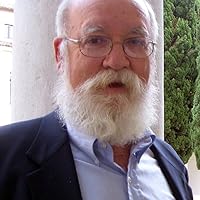Evolutionary Biology Quotes
Quotes tagged as "evolutionary-biology"
Showing 1-30 of 156

“Individuals are not stable things, they are fleeting. Chromosomes too are shuffled into oblivion, like hands of cards soon after they are dealt. But the cards themselves survive the shuffling. The cards are the genes. The genes are not destroyed by crossing-over, they merely change partners and march on. Of course they march on. That is their business. They are the replicators and we are their survival machines. When we have served our purpose we are cast aside. But genes are denizens of geological time: genes are forever.”
― The Selfish Gene
― The Selfish Gene

“Different sorts of survival machine appear very varied on the outside and in their internal organs. An octopus is nothing like a mouse, and both are quite different from an oak tree. Yet in their fundamental chemistry they are rather uniform, and, in particular, the replicators that they bear, the genes, are basically the same kind of molecule in all of us—from bacteria to elephants. We are all survival machines for the same kind of replicator—molecules called DNA— but there are many different ways of making a living in the world, and the replicators have built a vast range of machines to exploit them. A monkey is a machine that preserves genes up trees, a fish is a machine that preserves genes in the water; there is even a small worm that preserves genes in German beer mats. DNA works in mysterious ways.”
― The Selfish Gene
― The Selfish Gene

“Prediction in a complex world is a chancy business. Every decision that a survival machine takes is a gamble, and it is the business of genes to program brains in advance so that on average they take decisions that pay off. The currency used in the casino of evolution is survival, strictly gene survival, but for many purposes individual survival is a reasonable approximation.”
― The Selfish Gene
― The Selfish Gene

“The genes supply the motivation for warfare, [E. O.] Wilson is saying, in humans as they do in chimps, but people, blessed with the power of language, look for some objective cause of war. A society psychs itself up to go to war by agreeing that their neighbors have wronged them, whether by seizing property or failing to deliver on some promise. Religious leaders confirm that the local deity favors their cause and off go the troops. ”
―
―

“{On to contributions to evolutionary biology of 18th century French scientist, Georges-Louis Leclerc, Comte de Buffon}
He was not an evolutionary biologist, yet he was the father of evolutionism. He was the first person to discuss a large number of evolutionary problems, problems that before Buffon had not been raised by anybody.... he brought them to the attention of the scientific world.
Except for Aristotle and Darwin, no other student of organisms [whole animals and plants] has had as far-reaching an influence.
He brought the idea of evolution into the realm of science. He developed a concept of the "unity of type", a precursor of comparative anatomy. More than anyone else, he was responsible for the acceptance of a long-time scale for the history of the earth. He was one of the first to imply that you get inheritance from your parents, in a description based on similarities between elephants and mammoths. And yet, he hindered evolution by his frequent endorsement of the immutability of species. He provided a criterion of species, fertility among members of a species, that was thought impregnable.”
―
He was not an evolutionary biologist, yet he was the father of evolutionism. He was the first person to discuss a large number of evolutionary problems, problems that before Buffon had not been raised by anybody.... he brought them to the attention of the scientific world.
Except for Aristotle and Darwin, no other student of organisms [whole animals and plants] has had as far-reaching an influence.
He brought the idea of evolution into the realm of science. He developed a concept of the "unity of type", a precursor of comparative anatomy. More than anyone else, he was responsible for the acceptance of a long-time scale for the history of the earth. He was one of the first to imply that you get inheritance from your parents, in a description based on similarities between elephants and mammoths. And yet, he hindered evolution by his frequent endorsement of the immutability of species. He provided a criterion of species, fertility among members of a species, that was thought impregnable.”
―

“[Evolution] is reminiscent of the way that the temperatures of a hot object and a cold object placed in contact with each another approach thermal equilibrium, in conformity with the second law of thermodynamics.”
― The Quark and the Jaguar: Adventures in the Simple and the Complex
― The Quark and the Jaguar: Adventures in the Simple and the Complex

“Biological evolution is part of the winding-down process by which the informational gap between the potential and the actual tends to be reduced.”
― The Quark and the Jaguar: Adventures in the Simple and the Complex
― The Quark and the Jaguar: Adventures in the Simple and the Complex

“Too much tension is a disease; but so is too little. There are certain occasions when we ought to be tense, when an excess of tranquility (and especially of tranquility imposed from the outside, by a chemical) is entirely inappropriate.”
― Moksha: Writings on Psychedelics & the Visionary Experience
― Moksha: Writings on Psychedelics & the Visionary Experience

“Evolution is all about turning "bugs" into "features", turning "noise" into "signal", and the fuzzy boundaries between these categories are not optional; the opportunistic open-endedness of natural selection depends on them.”
― From Bacteria to Bach and Back: The Evolution of Minds
― From Bacteria to Bach and Back: The Evolution of Minds

“Evolution is all about turning "bugs" into "features," turning "noise" into "signal," and the fuzzy boundaries between these categories are not optional; the opportunistic open-endedness of natural selection depends on them.”
― From Bacteria to Bach and Back: The Evolution of Minds
― From Bacteria to Bach and Back: The Evolution of Minds
“To the extent that psychological mechanisms rely on information acquired through learning, they are vulnerable to maladaptive outcomes owing to the intrinsic limitations of learning processes. Indeed, the massive capacity for individual and social learning required to exploit the cognitive niche may contribute to explain our species' seemingly unique vulnerability to mental disorders.”
― Evolutionary Psychopathology: A Unified Approach
― Evolutionary Psychopathology: A Unified Approach
“Defensive mechanisms can make two symmetric kinds of mistakes: they can fail to activate in the presence of a threat (false negatives) or become activated when no threat is present (false positives). Even when defenses are functional and optimally calibrated, errors cannot be completely avoided; given the tradeoffs between the costs of different types of errors, the smoke detector principle suggests that defensive systems should typically evolve to commit more false positives than false negatives.”
― Evolutionary Psychopathology: A Unified Approach
― Evolutionary Psychopathology: A Unified Approach
“The factors facilitating the global emergence of pathogens shared between humans and animals are of particular importance because the diseases they induce have had major impacts on both human and animal health. This transfer of pathogens has ocurred for thousands, if not millions, of years and continues today.”
― Palaeopathology and Evolutionary Medicine: An Integrated Approach
― Palaeopathology and Evolutionary Medicine: An Integrated Approach
“Our species has co-evolved alongside many others to which we were in contact, especially through scavenging, hunting, and then animal husbandry, all of which would have exposed us to novel pathogens and zoonotic diseases. As a species, we had to adapt to these new pathogens without the benefits of modern medicine. The newly emerging diseases of recent decades, while novel in themselves, are but a repeat of patterns which humans have survived over several millennia.”
― Palaeopathology and Evolutionary Medicine: An Integrated Approach
― Palaeopathology and Evolutionary Medicine: An Integrated Approach
“Today there are almost eight billion people on earth, crowded together and travelling widely -this is 1300 times more than were present when the agricultural revolution began around 10,000 years ago and facilitated the spread of many pathogens.”
― Palaeopathology and Evolutionary Medicine: An Integrated Approach
― Palaeopathology and Evolutionary Medicine: An Integrated Approach
“Humans have always lived surrounded by potential pathogens. Whether they co-exist relatively harmlessly or become a problem, cause acute or chronic disease and spread slowly or in epidemics has been, and still is, influenced by how we have impacted the environments we share with other animals. Pathogens are opportunists within these environments, capable and ready to take advantage of anything that promotes their transmission.”
― Palaeopathology and Evolutionary Medicine: An Integrated Approach
― Palaeopathology and Evolutionary Medicine: An Integrated Approach
“As far as nature is concerned, we cannot claim more rights than a chimpanzee. Deal with it ~ Peter Ojo”
―
―
“Consider the least stable way to arrange an animal's body: it would be to stand it upright. To seee the biomechanics of a human skeleton walk and run -to stand on one foot and not fall, as most humans can easily do- is to witness a marvel of motion and balance, as robot engineers are learning their cost.
Bipedalism was the enabler of subsequent brain growth.”
― Evolutionary Psychiatry: Current Perspectives on Evolution and Mental Health
Bipedalism was the enabler of subsequent brain growth.”
― Evolutionary Psychiatry: Current Perspectives on Evolution and Mental Health
“Consider the least stable way to arrange an animal's body: it would be to stand it upright. To see the biomechanics of a human skeleton walk and run -to stand on one foot and not fall, as most humans can easily do- is to witness a marvel of motion and balance, as robot engineers are learning their cost.
Bipedalism was the enabler of subsequent brain growth.”
― Evolutionary Psychiatry: Current Perspectives on Evolution and Mental Health
Bipedalism was the enabler of subsequent brain growth.”
― Evolutionary Psychiatry: Current Perspectives on Evolution and Mental Health
“Humans have moved from 'object-assisted' to an 'object-dependent' species, and this has bidirectionally influenced brain development, notably visuospatial integration in the parietl lobes.”
― Evolutionary Psychiatry: Current Perspectives on Evolution and Mental Health
― Evolutionary Psychiatry: Current Perspectives on Evolution and Mental Health

“Insecurity is wisdom of the jungle against possible predatory attack.”
― Rowdy Scientist: Handbook of Humanitarian Science
― Rowdy Scientist: Handbook of Humanitarian Science

“Mission is purpose magnified,
Purpose is potential focused,
Potential is protoplasm evolving,
Protoplasm is a pocket universe.”
― Insan Himalayanoğlu: It's Time to Defect
Purpose is potential focused,
Potential is protoplasm evolving,
Protoplasm is a pocket universe.”
― Insan Himalayanoğlu: It's Time to Defect

“While many things that seem useless turn out to have a function, others are abysmal designs. The eye would be better without a blind spot. The birth canal is too narrow. Cancer protection mechanisms are insufficient, as are those that protect against infection. Ability to regulate eating is weak. Anxiety and pain are often excessive.”
― Good Reasons for Bad Feelings: Insights from the Frontier of Evolutionary Psychiatry
― Good Reasons for Bad Feelings: Insights from the Frontier of Evolutionary Psychiatry

“The greatest boon of modern life is also the greatest villain: the availability of plentiful food. Or, rather, foodlike substances manufacturers concoct with the exact combinations of sugar, salt, and fat that we most desire. Those desires were helpful on the African savanna, where sugar, salt, and fat were scarce; now our preferences make us obese and ill. Addiction to tobacco was not much of a problem until the breeding of milder strains and the invention of cigarette papers; now smoking causes a third of all cancers and much heart disease. Fermented beverages were sometimes available, but now readily available beer, wine, and spirits cause alcoholism worldwide. Advances in chemistry and transport make concentrated drugs such as heroin and amphetamine available everywhere; in combination with novel means of administration such as needles, they cause massive modern epidemics.”
― Good Reasons for Bad Feelings: Insights from the Frontier of Evolutionary Psychiatry
― Good Reasons for Bad Feelings: Insights from the Frontier of Evolutionary Psychiatry

“Many of our current health problems result, nonetheless, from the environments we have created to satisfy our desires. Most people in developed societies live better now physically than the kings and queens of just a century ago. We have a surfeit of delicious food, protection from the elements, time for leisure, and relief from pain. The accomplishments are spectacular, but they also cause most chronic disease.”
― Good Reasons for Bad Feelings: Insights from the Frontier of Evolutionary Psychiatry
― Good Reasons for Bad Feelings: Insights from the Frontier of Evolutionary Psychiatry
“Aussi, laissez-moi le répéter, l'évolution est synonyme d'espoir.”
― Heredity and the Nature of Man
― Heredity and the Nature of Man
“The great value of the Darwinian evolutionary paradigm is the way it helps us understand how what once was "noise" (e.g., unselected-uncorrelated variation) can become new "signal" under changing circumstances.”
―
―

“We have proven to be enormously successful at adapting. We are now adapting so fast that we can hardly adapt to our adaptation.”
― Religion in Human Evolution: From the Paleolithic to the Axial Age
― Religion in Human Evolution: From the Paleolithic to the Axial Age
All Quotes
|
My Quotes
|
Add A Quote
Browse By Tag
- Love Quotes 97k
- Life Quotes 75.5k
- Inspirational Quotes 72.5k
- Humor Quotes 43.5k
- Philosophy Quotes 29.5k
- Inspirational Quotes Quotes 27k
- God Quotes 26k
- Truth Quotes 23.5k
- Wisdom Quotes 23.5k
- Romance Quotes 23k
- Poetry Quotes 22k
- Death Quotes 20k
- Happiness Quotes 18.5k
- Life Lessons Quotes 18.5k
- Hope Quotes 18k
- Faith Quotes 18k
- Quotes Quotes 16.5k
- Inspiration Quotes 16.5k
- Spirituality Quotes 15k
- Religion Quotes 15k
- Motivational Quotes 15k
- Writing Quotes 14.5k
- Relationships Quotes 14.5k
- Life Quotes Quotes 14k
- Love Quotes Quotes 13.5k
- Success Quotes 13.5k
- Time Quotes 12.5k
- Motivation Quotes 12k
- Science Quotes 11.5k
- Knowledge Quotes 11k


